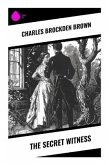In "Dream Women," William Wilkie Collins delves into the realms of psychological drama and Gothic intrigue, interweaving narratives that explore themes of desire, identity, and the subconscious. The novella juxtaposes dream-like sequences with stark reality, reflecting the period's fascination with the human psyche and the uncanny. Collins's prose is rich and atmospheric, employing vivid imagery and complex characterizations that draw readers into the labyrinth of the protagonist's mind, making it a significant contribution to the Victorian literary landscape and a precursor to modern psychological narratives. William Wilkie Collins, a contemporary of Charles Dickens and a pioneer of the detective fiction genre, was known for his innovative storytelling techniques and social commentary. His personal experiences with dreams and the supernatural, as well as his legal background, likely influenced the exploration of perception and reality in "Dream Women." Collins's tumultuous relationships and the societal constraints of his time also inform the psychological depth of his characters, enriching the narrative with multifaceted emotions and motivations. I wholeheartedly recommend "Dream Women" to readers interested in the nuances of psychological exploration within literature. Collins's masterful interplay of dream and reality not only entertains but also invites profound reflections on human nature and the complexities of perception, making it an essential read for both scholars and enthusiasts of Gothic literature.
Bitte wählen Sie Ihr Anliegen aus.
Rechnungen
Retourenschein anfordern
Bestellstatus
Storno








